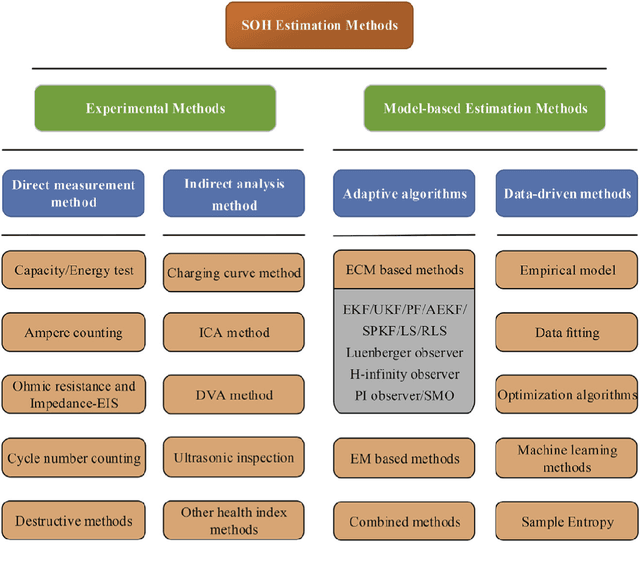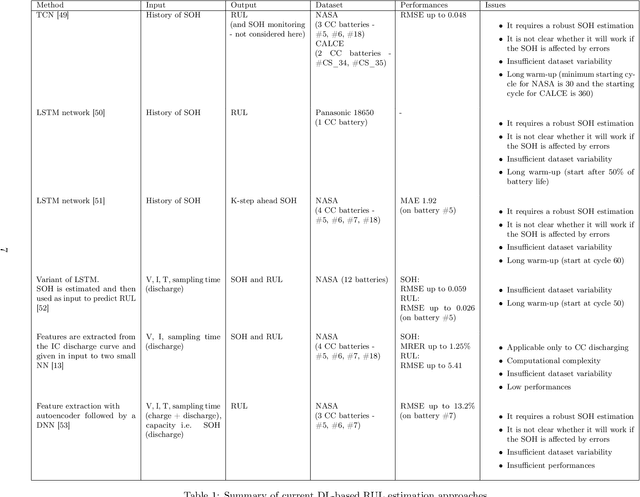Carlo Falcomer
To Charge or To Sell? EV Pack Useful Life Estimation via LSTMs and Autoencoders
Oct 07, 2021

Abstract:Electric Vehicles (EVs) are spreading fast as they promise to provide better performances and comfort, but above all, to help facing climate change. Despite their success, their cost is still a challenge. One of the most expensive components of EVs is lithium-ion batteries, which became the standard for energy storage in a wide range of applications. Precisely estimating the Remaining Useful Life (RUL) of battery packs can open to their reuse and thus help to reduce the cost of EVs and improve sustainability. A correct RUL estimation can be used to quantify the residual market value of the battery pack. The customer can then decide to sell the battery when it still has a value, i.e., before it exceeds its end of life of the target application and can still be reused in a second domain without compromising safety and reliability. In this paper, we propose to use a Deep Learning approach based on LSTMs and Autoencoders to estimate the RUL of li-ion batteries. Compared to what has been proposed so far in the literature, we employ measures to ensure the applicability of the method also in the real deployed application. Such measures include (1) avoid using non-measurable variables as input, (2) employ appropriate datasets with wide variability and different conditions, (3) do not use cycles to define the RUL.
 Add to Chrome
Add to Chrome Add to Firefox
Add to Firefox Add to Edge
Add to Edge